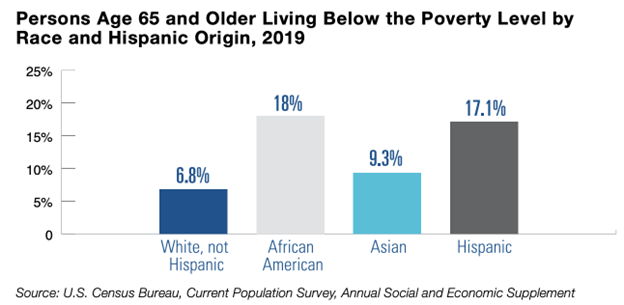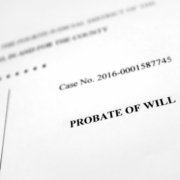Having a Will vs. Not Having a Will
Having a Will vs. Not Having a Will
People are afraid of death, especially their own. Add to that the question of what will happen to their assets after they die, and it’s no wonder so few people have estate plans.
According to a 2021 Gallup poll, only 46% of US adults have a will. This is a slight increase from 2016 when 44% had a will. Still, less than half of US adults have taken the time to create this important document. The poll also showed that older adults are more likely to have a will than younger adults. Of those polled who were over the age of 65, 76% said they have a will. It’s important to know your options on having a will vs. not having a will.
Dying Without a Will
If you were to die without creating a will, depending on the type of and amount of property involved, a state probate court may have to choose an administrator to manage the probate process for your estate and choose a guardian for any minor children you have, provided the children’s other biological parent is deceased or unable to care for them. The downside to this process is that the decisions the probate court and the administrator would make may not align with what you would want.
Dying without a will is known as dying intestate. It can sometimes create problems as to what happens to your assets and children. When your intentions aren’t known before you die, you set the stage for potential conflict among your family members and heirs. Although the law will divide values up equally among the legal heirs, without the will to use as a guide, the administrator has to guess what you would want and have the probate court approve it. This places an undue burden on the administrator, who is often a family member.
The administrator’s duties generally include the following:
- Locating all your living heirs and notifying them of your death
- Compiling a list of your assets
- Paying off any debts and taxes that are owed
- Collecting any money owed to your estate
- Distributing any remaining assets to beneficiaries deemed valid by the probate judge
To avoid creating conflict that could cause rifts in your family, draft and execute a valid will spelling out how you want your estate distributed, who should become the guardian for any minor children, address funeral arrangements, and what should be done with your remains.
Dying With a Will
When you have a valid will, it often makes life for your survivors much easier. In a will, you can appoint a person you trust to manage your estate after your death. The person you appoint is known as the executor for your estate. A will acts as their guide.
Even if you have a will, your estate still has to go through the probate process. The first step in the process is for the named executor to file your will with the probate court. The court then determines the authenticity of your will. Upon confirming that your will is valid, the probate court officially appoints the executor, most likely the person named in your will, to carry out the administrator duties. Generally speaking, as long as you don’t leave out forced heirs and your wishes in your will are not contrary to law, the executor the court will divide things out the way you have spelled out in your will. (Forced heirs are children under 24 years old or disabled. Disabled grandchildren can also be forced heirs. Forced heirs are generally entitled to a portion of your estate regardless of what your will says. There are several exceptions.)
Avoiding Probate
Regardless of whether a person dies with a will or not, the probate process exists to help ensure the decedent’s bills and taxes are paid and that their assets are distributed fairly. Though this sounds good in principle, the probate process can be a long and expensive process. And since the process takes place in the court system, it’s open to the public and the will can be contested. For these reasons, some people create trusts for their assets before they die. Their estates can settle outside of probate court and there is less of a chance that family members can successfully contest the will. Furthermore, trust-based estate planning, particularly with married couples, may be a money saver in the long run.
Consult with an estate planning attorney about your options. You may be able to keep your estate out of probate and leave a better legacy for your heirs.
This article offers a summary of aspects of estate planning and elder law. It is not legal advice and does not create an attorney-client relationship. For legal advice, contact our Ruston, LA office by calling us at (318) 255-1760.











